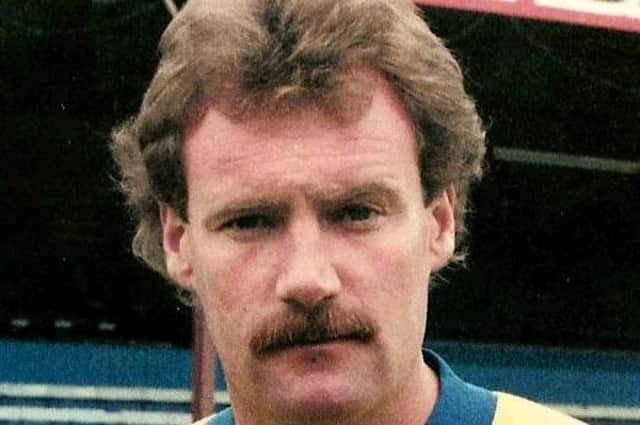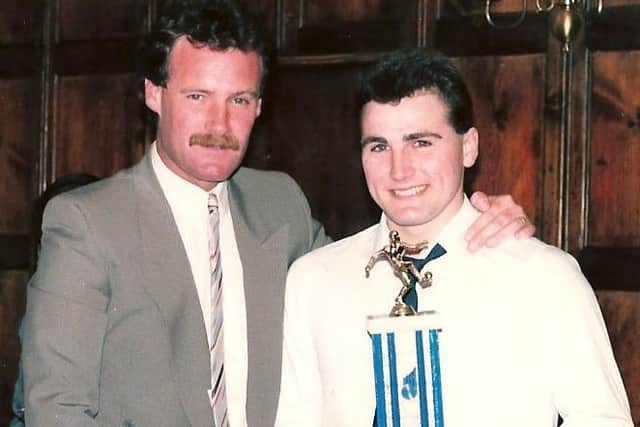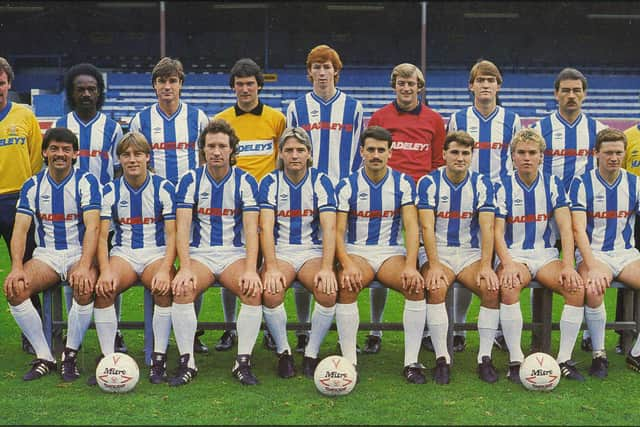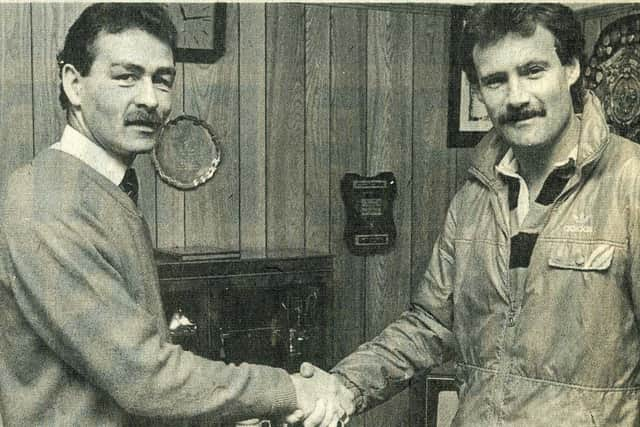Former Halifax Town boss Mick Jones dies aged 75


Jones was appointed as permanent successor to Mickey Bullock on the recommendation of a certain Brian Clough, who knew a thing or two when it came to football.
So the story goes, Clough rang the Shay offices to speak with John Crowther, the then chairman, claiming to be the ‘the world’s greatest manager’ and recommending Mick Jones, ‘the world’s second greatest manager’ to the vacant position at Halifax Town.
Advertisement
Hide AdAdvertisement
Hide AdThe directors thus appointed Jones, and Crowther has since been left to regale that story to anyone with a passing interest in the club’s history.


Born in Sunderland in March 1947, Jones had first come under Clough’s wing as a player when Clough took over as Derby County manager in June 1967. But failing to make the grade at the Baseball Ground, Jones picked up his career at Notts County, becoming an accomplished centre-half, and being a key figure in their 1970-71 Division Four promotion campaign, and again two years later when County went up into the Second Division.
He joined Peterborough United in August 1973 and helped the club to the Division Four championship in his first season and spent three seasons with the club. Jones then had a brief spell as player-coach at now defunct Canadian outfit Ottawa Tigers before he returned to England in 1976 with Kettering Town, initially as player-manager. In a successful spell, he led Kettering to the FA Trophy Final in 1979, only to see his side lose to Stafford Rangers.
In August 1979 Jones had his first taste in League management with Mansfield Town, only for his first season in charge to end in relegation to the Fourth Division, and after being sacked in May 1981, he joined Roy McFarland at Bradford City as assistant manager and followed him to Derby when McFarland took over as manager there in April 1984, just prior to linking up with Halifax Town.
Advertisement
Hide AdAdvertisement
Hide AdJones’ appointment as successor to Mickey Bullock wasn’t cut and dried. After all, Billy Ayre had made a strong case for the job by losing only one of four games during a caretaker stint.


But after the side had won the last of these against Mansfield on 10 November 1984, and following Brian Clough’s intervention, Jones was unveiled as Town’s new manager, though he ensured his first task was to make Ayre his right-hand man.
The pair worked well together, with Jones getting off to a terrific start, enjoying victories in his first three matches, including FA Cup success over Goole Town in his first game in charge.
But a depressing sequence of results during the second half of the campaign meant that a re-election application became almost inevitable. It was, however, the last time Town would find themselves having to go through this process.
Advertisement
Hide AdAdvertisement
Hide AdThe following term, Jones strengthened the side with the signings of Phil Brown and Billy Kellock, and snapping up young Nottingham Forest striker David Longhurst. Town may have finished twentieth, but the re–election issue had been staved off long before the final whistle. It was a season in which Jones made the headlines himself when he walked from Halifax to Preston to meet up with his side before his side’s match at Deepdale on 11 January 1986, a game incidentally won 1-0 courtesy of a Kellock headed goal.


It was all to raise money for the Martins House Appeal, raising money for a hospice being built at Boston Spa, a charitable act by a very charitable man.
Jones, of course, was at the helm during Town’s traumatic 1986-87 season, one which not only saw the side stranded at the foot of the table early on after losing seven consecutive matches, but also staring possible extension in the face. Under such uncertainty did Jones continue to work, though not for long. Despite facing the supporters at a public meeting held at the Civic Theatre on 12 December 1986, he never publicly denied his intention to join manager Noel Cantwell at Peterborough United, and six days later he was gone, though no one could have blamed him for securing his own future.
He left Halifax Town with a modest record but remained one of the club’s most popular managers.
Advertisement
Hide AdAdvertisement
Hide AdJones eventually succeeded Cantwell as manager at Peterborough in July 1988, and though he didn’t enjoy any great success, he did strike up a great working relationship with Neil Warnock, who was on the coaching staff there.
Together, the pair would work well at several clubs, with Jones reverting to his role as assistant manager to Warnock at Notts County, Huddersfield Town and Plymouth Argyle. Jones, however, did spend time abroad on his own, enjoying a successful spell coaching the Brunei national team where he performed an amazing feat in getting the tiny Borneo province to their first ever Malaysia Cup final in 1999, beating Sarawak 2-1 to collect the trophy.
Jones remained with Brunei until 2002, returning to England for spells as assistant manager to Carl Shutt at Nuneaton Borough and as manager of Telford United, whom he took to the fourth round of the FA Cup and the semi-finals of the FA Trophy, before financial problems led to the collapse of the club, forcing him to leave in April 2004.
The following year, Jones resumed his partnership with Neil Warnock at Sheffield United, helping them to promotion to the Premier League at the end of his first season. When the Blades were relegated twelve months later, Warnock and Jones both resigned. The pair had a short period out of football before joining Crystal Palace in October 2007, with the Eagles turning from relegation battlers to play-off semi-finalists under Warnock and Jones’ stewardship.
Advertisement
Hide AdAdvertisement
Hide AdWith the club in administration, Warnock took over as Queen’s Park Rangers manager in March 2010, and Jones in turn followed him to Loftus Road. The pair later worked together at Leeds United, Rotherham United, Cardiff City, and their last club, Middlesbrough up until last November.
It was Warnock who led the tributes via Twitter in the wake of his death, describing his erstwhile assistant as ‘the sensible one’. He later added, ‘He was a trustworthy assistant. He always spoke his mind, wasn't a yes man, and was just a lovely bloke,’ and finished by saying that he would miss him loads, as will many throughout the footballing world.